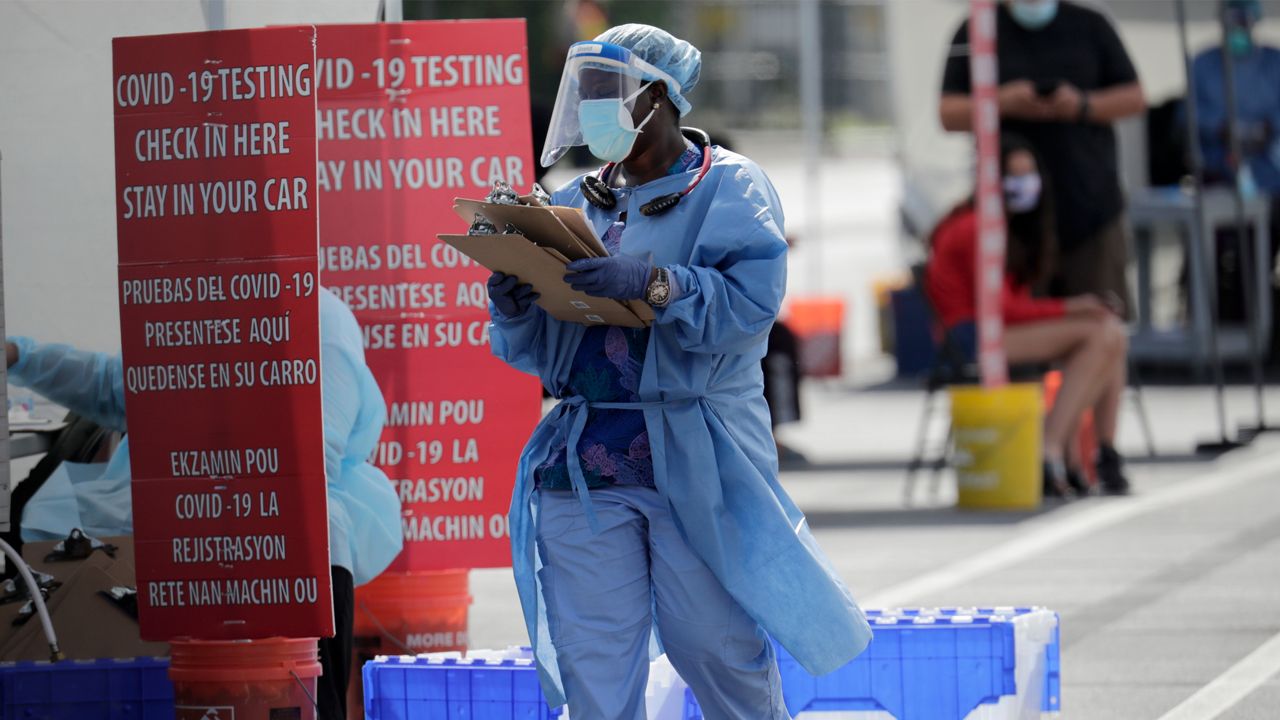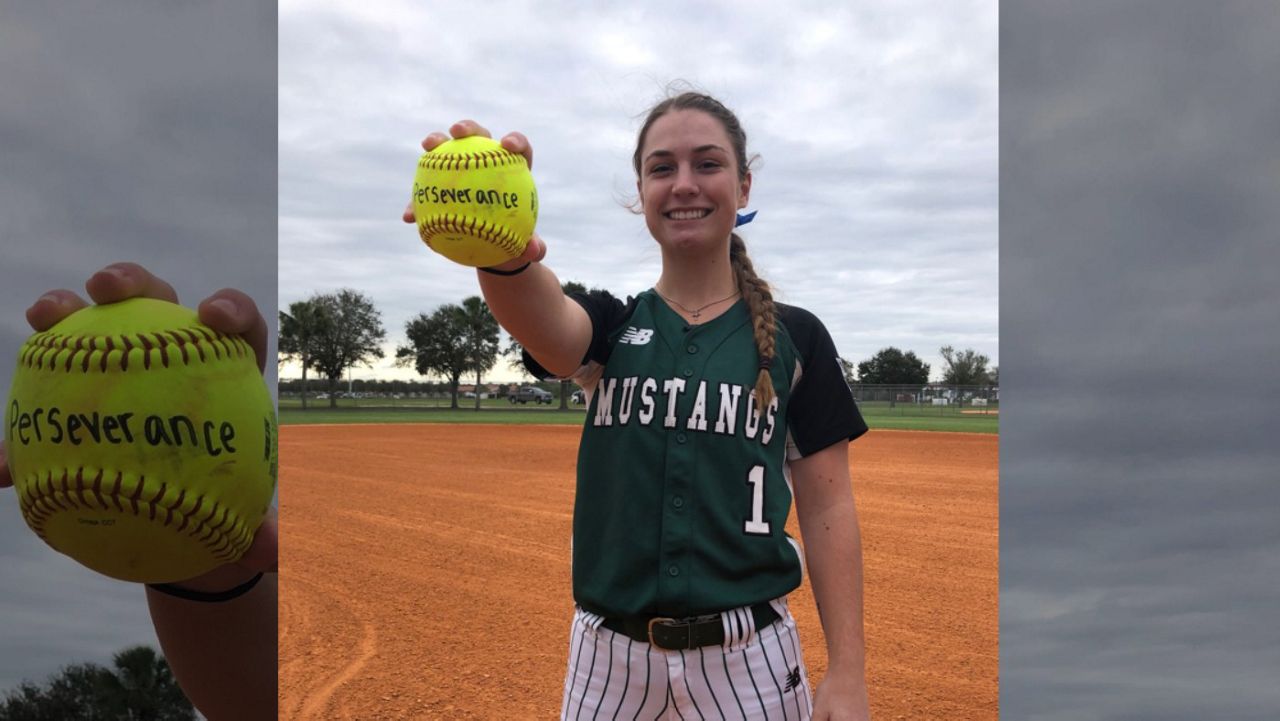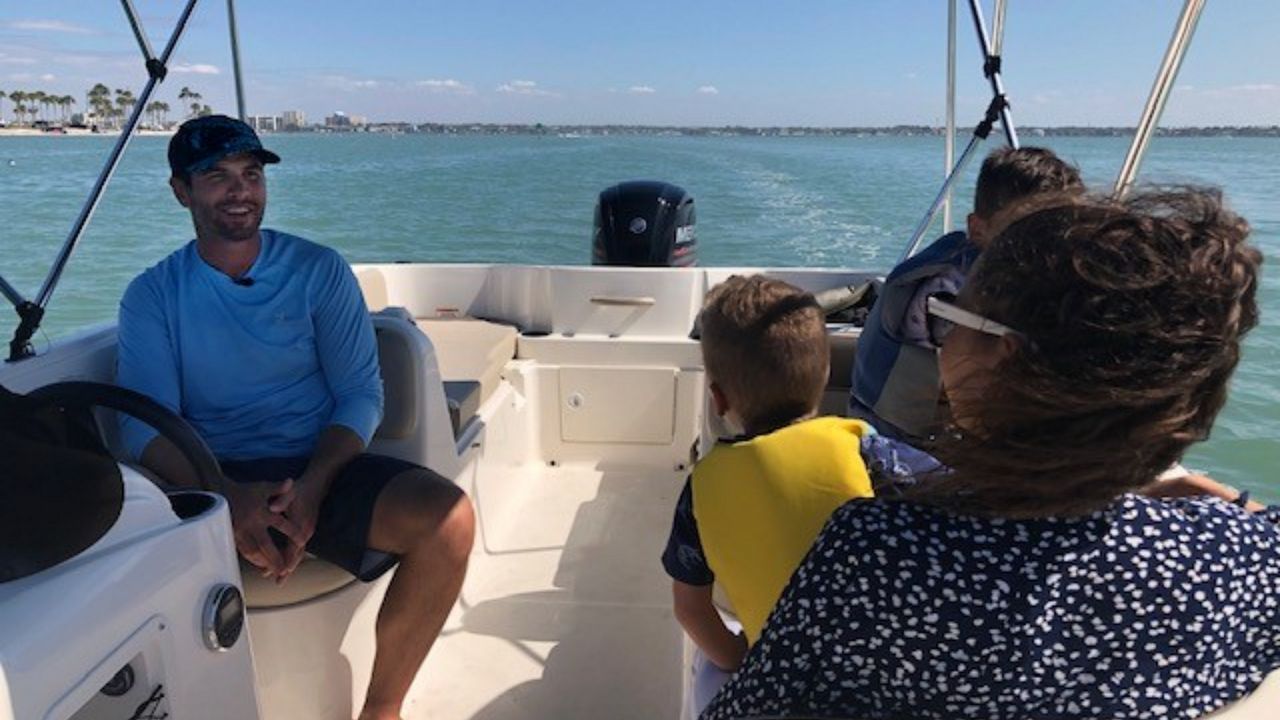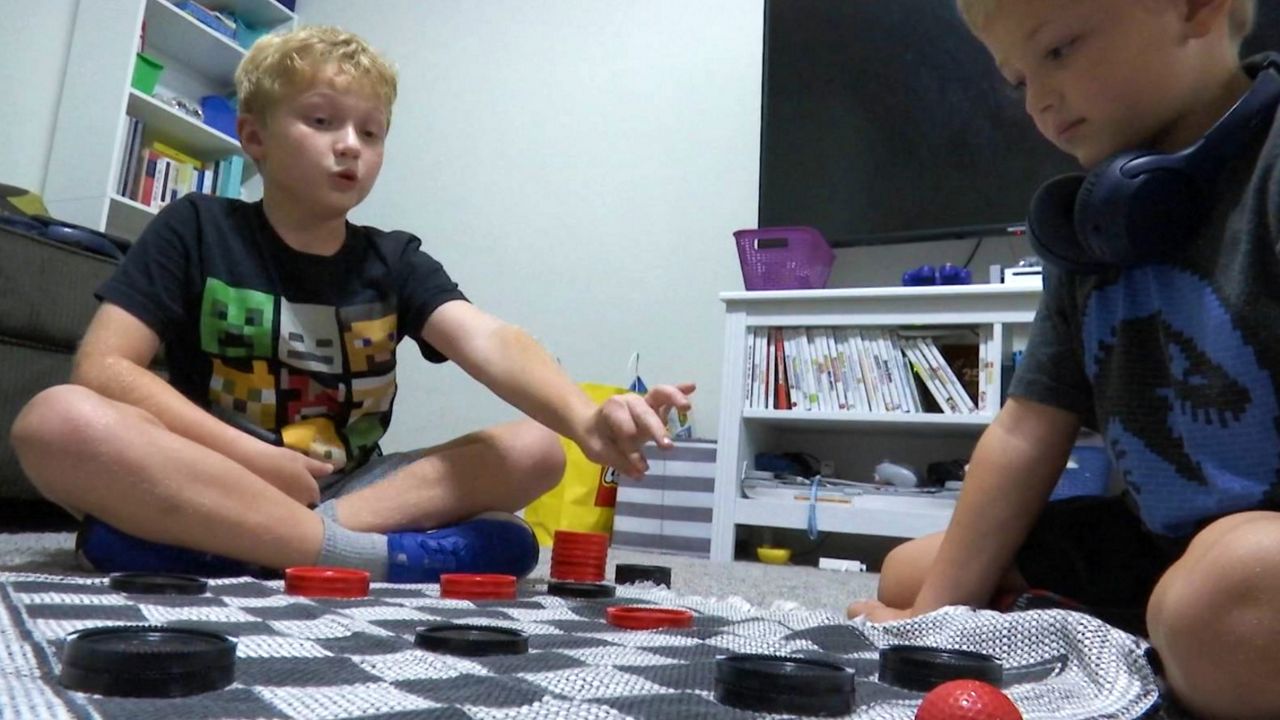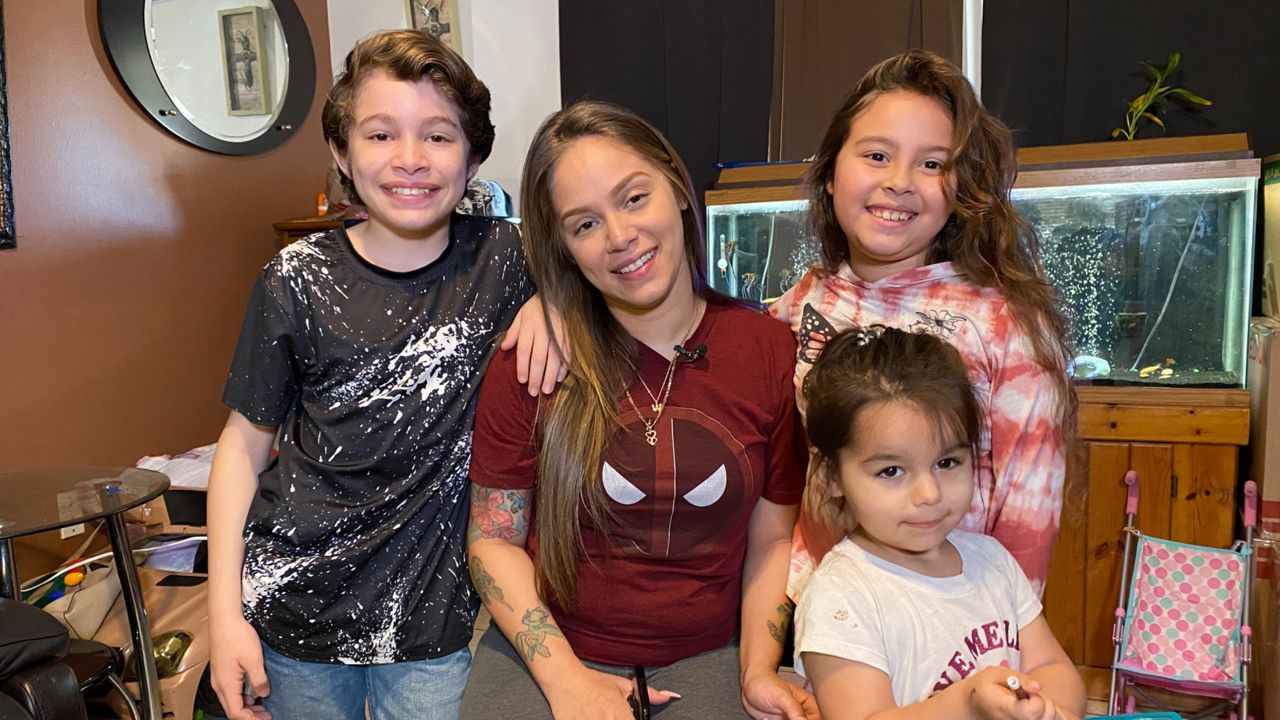APOPKA, Fla. — Ohio snowbird Sylvia Dugas has been cooped up in her Apopka home as her playroom — specially designed for her grandchildren — sits silent.
What You Need To Know
- Floridians continue to look for scarce jobs, yearn to visit extended family
- Artists, performers, venues get creative in order to pursue their passion
- Restauranteurs manage to find ways to connect with hungry patrons
- A YEAR OF COVID: Explore the impact on communities, families, and local businesses
“We’re a close family, and it’s just been difficult. You know?" she said. “I haven’t seen my children or my grandchildren. I feel cheated. People our age are missing the contacts with kids and grandkids. And you can’t make that up. It’s just gone.”
Elsewhere in the MetroWest community of west Orlando, single mother Emily Zulu, laid off from her hotel job with Marriott a year ago, now faces eviction.
Taking care of her 12-year-old daughter and 1-year-old son while also searching for jobs at the same time has been difficult.
“The next thing I see is something on my door saying, you know what? We’re giving you almost less than two weeks. I have two kids. How am I going to get my stuff out of here? How am I going to find a new place?" she said.
“I have to keep it together for the kids and be happy. Sometimes you close the door and pray. And hope it’ll be a better day.”
In-Office, Work-From-Home Hybrid Model
A recent survey by insurance company The Standard and Versta Research found that nearly half of full-time workers are dealing with mental health issues.
“It’s not that people can’t work. It’s that they’re starting to work too much. They’ve got no transition between work and home. Someone might be sitting in the same spot, working all day, then in the evening, watching a movie with their family," said Joel Patterson, who founded The Vested Group.
Patterson said he sees that hybrid model — doing some work from home, with some office time — as to what is next.
"It's really important for people to stay connected, he said. “I worry about what you’re missing. You’re not getting any of the rapport-building. … It’s really difficult to connect over video.”
A New Reality for Artists, Performers
Before she could even touch the pedals, piano was the familiar refrain in Abby Huang’s life.
Her mother, Wey Wey, watched her piano-playing prodigy light up the stage at Carnegie Hall in New York at age 8.
“It brought tears to my eyes. I still enjoy every time I watch her play. It’s mesmerizing," said her mother. “She didn’t start speaking till later in life, and it came out in the music."
“I feel proud. ... When I’m upset, I feel happy, I feel found," said the young pianist, now 10.
But the past year — as concert halls sat empty across the country — Abby played not for the masses, but for online fans via weekly Facebook Live sessions from her home.
“We read the feedback from the Facebook posts," said her mother. "That cheers her up.”
In Orlando, the Harriett's Orlando Ballet Centre sat empty, too, for months until they began rigorous coronavirus testing, temperature-taking, enforced mask-wearing, and by the fall, slowly welcomed back dancers to the stage. It was one of the first ballet companies in the country to do so.
“I think it’s pushed us creatively," said Jorden Morris, Orlando Ballet choreographer-in-residence. “I’ve had to adapt choreography for spatial awareness. For instance in Moulin Rouge … I started to use his cane as an extension of his arm. It made this creative element, and I’m going to keep some of the choreography when it goes back to the 'normal,' 'new normal,' or a show.”
Since the company returned to the studio in June, it's had zero transmission of the virus originating from the Centre, located along North Lake Formosa Drive.
“The audiences love the show. ... I think they’re enjoying that the arts can give them something during this time," said Morris.
Audiences are hungry for art, however they can get it.
That includes spaced-out pods on the front lawn of downtown Orlando's Dr. Phillips Center as part of its live music concert series.
“I honestly thought it wasn’t going to be the same feel. Usually, I’m an outdoor concert person. We have our blankets down," said Monisha Perkins, who lives in Maitland.
But Perkins saw the novel concept, called several friends she had not seen in awhile, and decided to take her lunch outside — with a side of jazz.
"I still feel like I’m at a concert and sitting, listening to the music. I don’t think I could go back to being in the Amway, without a mask, with some random person by me screaming, spitting," she said. "At least for the next two to three years, this is how we’re going to be. Personally, for me, I don’t think I’d feel safe.”
Appetite for Food Has Grown
While safety has often kept people home, they remain hungry. In fact, grocery spending in Florida is up 27% over the past year.
As convenience began compelling change — how people consume — suddenly, everything could be picked up or delivered.
“The fact that people are now doing take out and not eating at the restaurants, it’s something that’s kind of frustrating. You’re selling art of the experience," said Thomas Ward, an Orlando restaurant owner. “We’re fighting for that customer that’s at home, wants food delivered to their house."
Puerto Rican-born Ward got into the restaurant business in 2011 and opened a food truck with no prior cooking knowledge. He said he "learned how to cook on YouTube."
But, years later, that gave way to a BBQ concept restaurant called Pig Floyd's Urban Barbakoa. Located along Mills Avenue in downtown Orlando, it's a booming business — or it was, until the pandemic hit in the spring.
Ward closed his Lake Nona location permanently, deciding to "double down" on the Mills location in order to achieve success.
Pig Floyd's dining room reopened the first week of June at 50% capacity. Since then, business has steadily picked up, though take-out used to account for 15 to 20% of business. Now, it's closer to 50%.
Foreshadowing what the future of dining might look like, Ward’s covering his outdoor patio, allowing for more spaced-out dining, and trying to reach that customer at home.
“We’re doing a podcast now, beyond the brisket videos," he said.
Across the street, creativity is what Juliana Calloway said kept her joint, Black Rooster Taqueria, afloat. Instead of relying upon its taco business alone, the restaurant began delivering Margarita-grams throughout town during the lockdown period.
“What if you could order somebody four margaritas with a nice note, delivered to their doorstep? … 200 orders later, it just took off," laughed Calloway. “We also had to get creative communicating with our guests every aspect of the business, whether that’s what we’re doing to keep everyone safe, to what we’re doing to help our team.”
Black Rooster is soon opening a second location along Curry Ford Road in Orlando with much more outdoor seating, a sharp contrast to the tiny Mills Avenue location. It's part of what people crave right now, she said, in addition to a sense of connection.
Customers are “not just hungry to go out and out to eat, but I think having a sense of community and really wanting to help locally-owned businesses," Calloway said. “We’re thankful, we feel very grateful to the community. ... Everyone was ordering take out to help out. It was so heartwarming to see that, everyone rallying around local restaurants.”
Without a crystal ball, it’s hard to predict what a post-pandemic world might look like and what changes will stick. But it’s showed us what we can do and what matters most.
“I’m so thankful that I’m one of the few artists that is able to work at this time," said Morris of his stay at Orlando Ballet.
He realizes many colleagues in his home country of Canada are not working.
“They are my happiness, they are my happiness," said Zulu, the laid-off mom juggling looking for work, of her kids. “(It's) just the three of us; it’s a lot. I have to take a step and breathe in, breathe out sometimes. I can only win with my kids."






